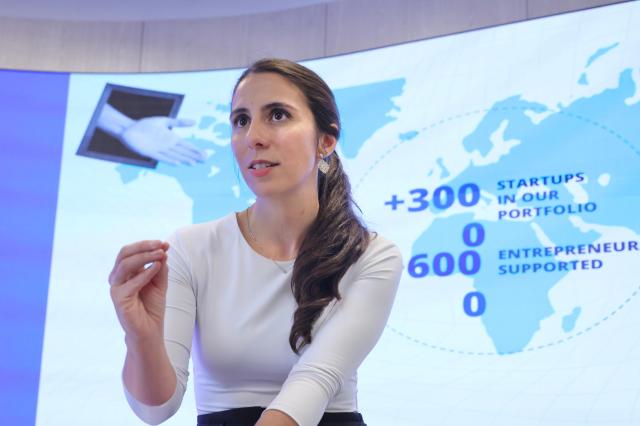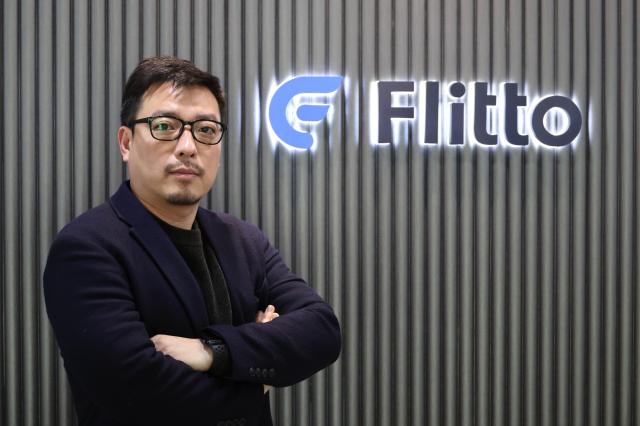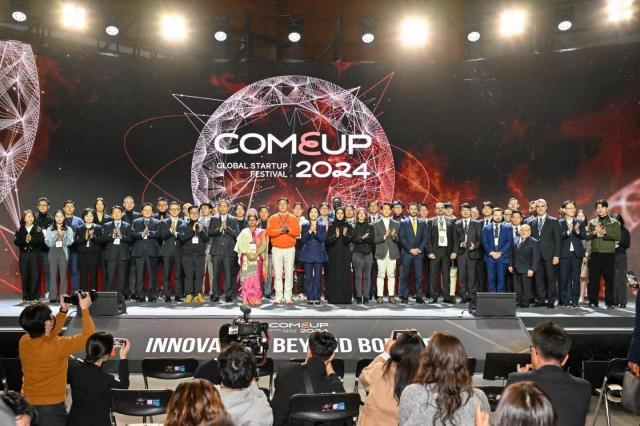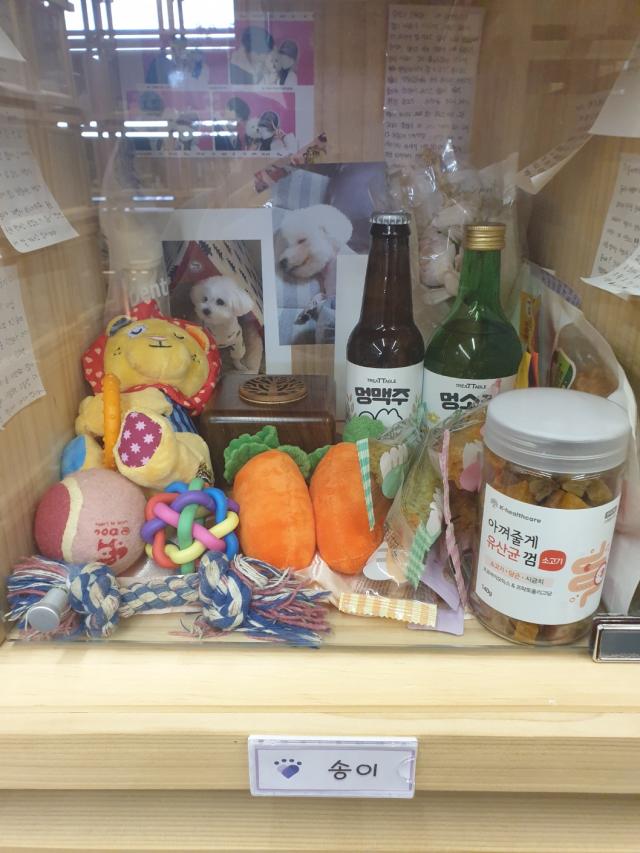 Javiera Araneda, CEO of Start-Up Chile, speaks during an interview with AJP at the Global Startup Center on Apr. 23. AJP Han Jun-gu
Javiera Araneda, CEO of Start-Up Chile, speaks during an interview with AJP at the Global Startup Center on Apr. 23. AJP Han Jun-guSEOUL, April 24 (AJP) - To Javiera Araneda, CEO of Start-Up Chile, a startup isn't just a trendy business idea or a sleek new app. At its core, she says, a real startup is about purpose—and that purpose starts with solving a problem.
“In our view, a startup should be tech-based,” Araneda said in an interview with AJP at a startup pitching and networking event held in southern Seoul on Wednesday, hosted by the Embassy of Chile in the Republic of Korea. “But more than just using technology, the technology needs to sit at the heart of what the company is trying to do. It should be the tool that delivers value, and addresses a problem that actually needs solving.”
Araneda was in South Korea leading a delegation from Start-Up Chile, one of the world’s pioneering public accelerator programs. Founded in 2010 by the Chilean government, the Santiago-based initiative was a bold experiment at the time. The initiative offers equity-free public funding, not only to local startups but to founders from around the world. “It was a little crazy,” she said, “but it worked.”
Fifteen years on, the program has backed over 3,000 startups and supported more than 6,000 entrepreneurs from 100-plus countries. Its alumni include four unicorns and dozens of companies that have made their mark across Latin America.
Today, Start-Up Chile runs three main tracks -- Build, Ignite, and Growth -- designed for early-stage to scaling companies. Selected startups receive non-dilutive grants of up to 80,000 U.S. dollars, along with co-working space, mentorship, and access to a wide network of corporate partners and investors.
When asked what separates startups that survive from those that don’t, Araneda didn’t hesitate. “It comes down to the team,” she said. “Ideas are easy. What matters is execution. How the team delivers, how closely they stay connected to their users, and whether they’re solving something that truly matters.”
She recalled hearing a successful founder once say, “You want your customer’s hair to be on fire. That’s the kind of urgency your product should address.” Building something polished is fine, she added, but not before confirming that someone actually needs it.
As part of her trip to Seoul, Araneda met with South Korean startup founders and government representatives to discuss potential collaborations. South Korean startups, she noted, are already making inroads in the Latin American market through Start-Up Chile.
“We’re fully open in terms of industries,” she said. “We’ve seen shifts over the years—fintech and blockchain had a big wave, then edtech and healthtech during COVID. More recently, biotech and climate-focused startups have been on the rise. What matters most is whether there’s a meaningful fit with the Chilean or Latin American market.”
Startups don’t need a Chilean office to apply, she added. “You can apply from Korea, no problem. If you’re selected, we just ask that someone from the team comes to Chile for the program. We’ll help you get set up, and yes, we support branch establishment.”
The accelerator also runs a dedicated program to support women entrepreneurs. Its “Female Founder Factor” initiative aims to close gender gaps in tech and startup leadership. In the Build program, at least half of the selected teams must be women-led. “We want to highlight these stories and build a strong, global network,” Araneda said.
Asked why Chile should matter to South Korean entrepreneurs, she replied, “We’re a small country, but we’re open, connected, and very startup-friendly. We’re a great place to pilot, scale, and expand into Latin America. Our programs are in English, and the community is incredibly diverse. You don’t need to speak Spanish to start.”
Start-Up Chile’s latest global call for applications is open through May 9. “If you’re a Korean founder thinking globally, this could be the opportunity you’re looking for,” Araneda said.
Copyright ⓒ Aju Press All rights reserved.





View more comments